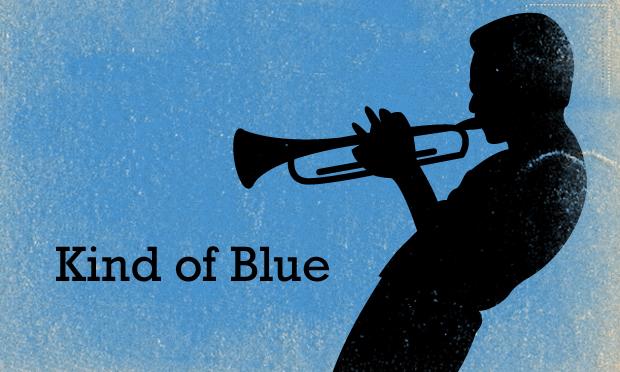“Kind of Blue”
This is everything jazz could be: avant-garde, hip, and soulful.
Even if you’ve never bought a jazz album in your life, you’ve heard Miles Davis’s masterpiece,Kind of Blue— at a party, in a movie, or a restaurant. Though it was just a blip in the jazz world when it was released in 1959, it eventually becamethe archetypical jazz record. Jimmy Cobb, the drummer on Kind of Blue and the only member of the band still alive, never expected the album would become a touchstone. “We just figured we made a good record,” Cobb says. “We had no reason to believe that this was going to be better than some of the other ones we made.”
Kind of Blue was revolutionary. It introduced the world to a new, minimal sound known as modal jazz. But it wasn’t the first time Davis had invented a new style: after getting his start with Charlie Parker at the tail end of the bebop scene, his collaborations with the composer Gil Evans gave rise to cool jazz. But Kind of Blue blew up in a way that Davis’s earlier records hadn’t, becoming a staple of mainstream record collections and going on to influence generations of musicians. “It’s like Shakespeare,” says critic Terry Teachout. “Even if you haven’t seen Hamlet, you’ve heard a lot of Hamlet, and the first time you see it you hear all the quotations. Kind of Blue is like that.”
But Davis’s misbehavior — meting out verbal and physical abuse, about which he remained unrepentant to the end — can make listening to Kind of Blue difficult. There’s a jarring contrast between the beauty of the music and the harsh, sometimes violent man behind it. Should we judge a work in light of an artist’s life, or on its merits alone? “I was really angry at him for living the kind of life that made it impossible for me to listen to that amazing music and not think about what he might have been doing the morning he recorded the music,” says the writer Pearl Cleage.
(Originally aired: February 2, 2007)
